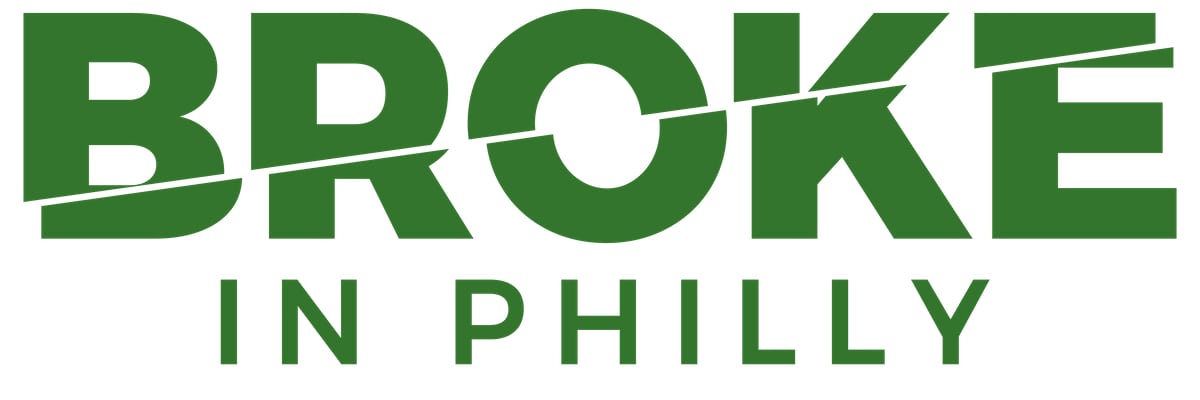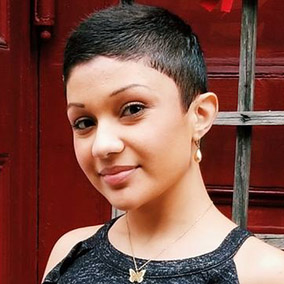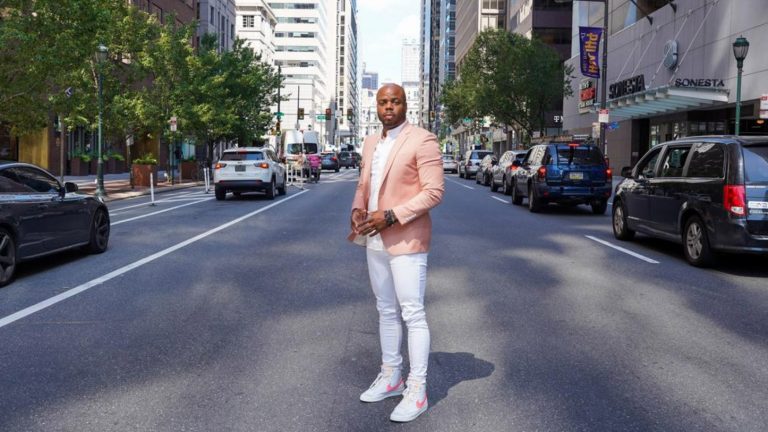
Technical.ly is one of 20+ news organizations producing Broke in Philly, a collaborative reporting project on solutions to poverty and the city’s push toward economic justice.
A new Philadelphia law that forbids marijuana testing during the hiring process stands to improve job prospects for many, including people with state-sanctioned prescriptions.
Several of the city’s largest employers are likely exempt from the ban, however, and stereotypes around marijuana use endure. On the other side, as staffing crunches hit nearly all sectors, a platform that’s like LinkedIn for weed users is thriving.
Introduced by Councilmember Derek Green, the ban was passed by Council last April and went into effect Jan. 1. Some observers say it’s likely to boost the local economy.
“This is a really sensible step for the business sector of the region,” Chris Goldstein, a regional organizer with NORML, told Billy Penn. “Pre-employment screening prevented millions of people from applying for everyday jobs, and in this hiring crisis, you really can’t do any more than this to help.”
Pennsylvania legalized medical marijuana in 2016, and there were over 340,000 licensed medical marijuana users in the state as of last May. Philadelphia decriminalized cannabis in 2014 and recently passed an addition to the city charter endorsing a statewide referendum on legalization.
Damian Jorden runs Phynally, a Philly-based job search engine that lists opportunities at companies that don’t pre-screen for cannabis.
The job search platform saw around 2,000 users in December. It posts jobs nationally, partnering with employers like Citizens Bank, Amazon, GoPuff and La Colombe. Phynally’s operation has a medicinal side, too: It pre-qualifies Pennsylvania residents for medical marijuana prescriptions and connects them with physicians licensed to issue cards in the state.
Jorden says he’s already seen an uptick in interest since Philly’s new law went into effect. “More people are inquiring and reaching out about how to work with us,” he said.
“These corporate entities are realizing the stigmas around cannabis use don’t hold true,” said Jorden. “People think cannabis users are excluded from the regular population. But they’re not. They are the population.”
In theory, all employers within Philadelphia must comply with the law or face to-be-determined fines.
However, the law only addresses pre-employment cannabis screening. Employers can still drug test employees at random once they’re on staff, and the law comes with a slew of exemptions.
And pre-screening can still be required for safety sensitive positions (think those that require operating heavy machinery, working with children, or controlled substances); jobs beholden to federal funding; or openings tied to a union agreement that allows for drug testing.
Exemptions can get complicated
Some experts say the city’s definition of certain exempt positions could limit how many companies must follow the new law.
Philadelphia’s law mirrors language in the state’s Medical Marijuana Act that bans cannabis consumption for safety-sensitive positions. Some of these are pretty clear cut: You can’t use marijuana and work on power lines or operate a forklift, for example.
However, there’s a sneaky clause that empowers employers to define what a safety-sensitive position can be if it falls outside the obvious examples, which can let stigmas around marijuana consumption fester.
Pre-screening prohibitions won’t affect people applying to “any position in which the employee could significantly impact the health or safety of other employees or members of the public.”
Jobseekers can bring complaints to the Philadelphia Commission on Human Relations, who will determine whether or not the position is safety sensitive. According to city spokesperson Kevin Lessard, the commission is still drafting the criteria that will be used to settle these disputes and will not accept or address complaints filed before that criteria is finalized.
Ethan O’Shea, a litigation lawyer specializing in cannabis and employment disputes, has seen plenty of situations where a jobseeker is denied because an employer perceives the position to be safety sensitive. They can bring a legal challenge, he said but “laws like these are too new to say who typically wins.”
Colorado provides some legal precedent. In 2015, the Colorado Supreme Court ruled against a DISH Network employee who claimed he was wrongfully terminated after testing positive for marijuana in a random drug test, despite being a quadriplegic who was prescribed the substance.
Worried you could end up in one of these disputes? O’Shea says employees need to look at the duties of the job objectively, which can be difficult since “most people believe they aren’t impaired and can do the jobs they hold.”
Despite the newfound interest in his company, Jorden, Phynally’s founder, is worried not enough people know about Philly’s new rule. He’s seen little communication from the city or major employers about what the changes mean.
“Yes, the law dropped. But how many people are actually paying attention?” he said. “If you get up tomorrow and get certified for medical marijuana, it doesn’t come with an email attached saying you can apply for nearly any job you want.”
There’s also potential for pushback from major employers used to the traditional hiring cadence: Scan the resume, interview the candidate, maybe call some references, drug test, and then hire.
“If some companies have spent the last 30 years performing pre-employment screenings on every single employee, they’re stuck in this strange routine,” said Goldstein, the legalization advocate. “It might take awhile to get them out.”
How is it working in practice?
Among some of Philadelphia’s biggest employers, compliance looks different at each company.
The University of Pennsylvania and its health system are consistently ranked as the top job supplier in Philadelphia, with a workforce of over 48,000 as of November 2020. The university wouldn’t comment on how the law is impacting its hiring process, but did send over the most recent version of its workplace drug policy.
Currently, the university is a “drug-free workplace,” but doesn’t explicitly state if it screens applicants for professor, programming, administrative positions for cannabis. However, Penn does test candidates within 5 days of a job offer for positions that require them to operate a commercial vehicle.
Temple University and the Temple University Health System, which round out the top 10 largest employers in Philly, have modified their drug screening policy to match the new law, according to spokesperson Stephen Orbanek.
“We believe this change has already been integrated seamlessly,” he said.
Comcast and Aramark, two of the other biggest employers in Philly, did not return requests for comment.
Join the conversation!
Find news, events, jobs and people who share your interests on Technical.ly's open community Slack

Philly daily roundup: East Market coworking; Temple's $2.5M engineering donation; WITS spring summit

Philly daily roundup: Jason Bannon leaves Ben Franklin; $26M for narcolepsy treatment; Philly Tech Calendar turns one

Philly daily roundup: Closed hospital into tech hub; Pew State of the City; PHL Open for Business


